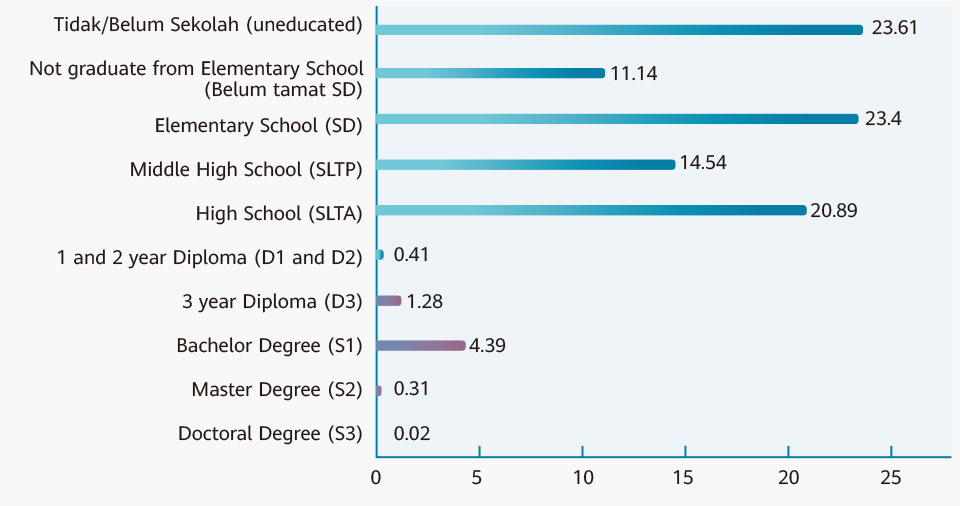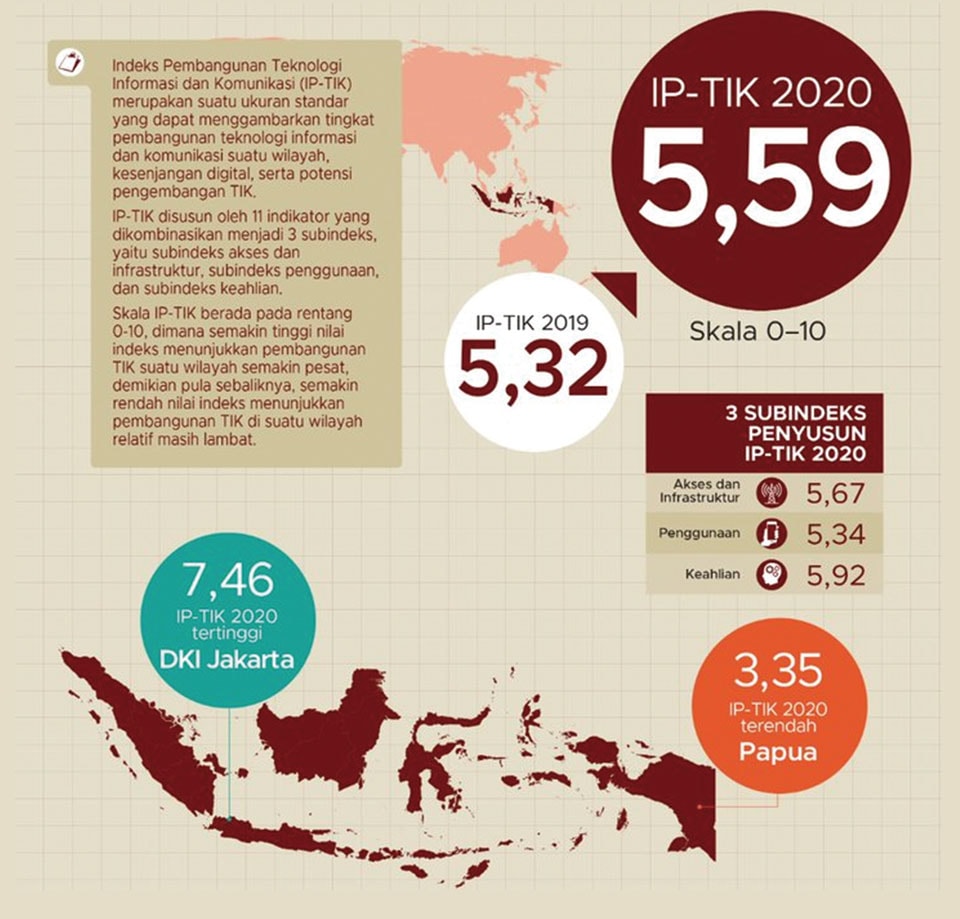Industry Ecosystem
Developing Digital Talent to Bridge the Demand-Supply Gap in Indonesia
The Indonesian government is collaborating with Huawei and other partners to bridge the talent gap between education and industry needs.


By Indonesia Enterprise Partner Development Mgmt Dept, Huawei
Indonesia's President Joko Widodo stated, "To achieve Vision of Indonesia 2045, we need to develop talented and competent human resources, especially digital talent." Specifically, Indonesia needs to cultivate approximately 3 million tech professionals over the next five years, equating to 600,000 per year.
That is quite a high number to reach.
Indonesia’s education architecture
Education institutions are the main platforms for creating digital talent. Based on data from the Ministry of Education, Culture, Research and Technology, Indonesia is home to more than 4,000 higher education institutions, not including universities under the Ministry of Religious Affairs and Ministry of Labor. Higher education in the country is divided into two major types: general and vocational. Universities, institutes, and high schools are examples of institutions that provide general education from which students ultimately graduate with the corresponding degree. Vocational education provides a more practical education that yields a diploma at the D1, D2, or D3 level, with the number representing years of study (Figure 1). Academies and polytechnics are typical vocational schools.

Figure 1: Source: Inodesian Ministry of Education
There are mainly two reasons that can explain this phenomenon.
First, given Indonesia’s size, the engagement of students in ICT varies considerably across the country. While the ICT Development Index released annually by the Agency of National Statistics shows a year-on-year increase, rising from 5.59 in 2020 to 5.76 in 2021, the level of development varies from region to region. Java and the Sumatra islands invariably score higher than other provinces, especially those in eastern Indonesia. For example, in Jakarta the ICT Development Index is 7.46, while in Papua province it is just 3.35 (Figure 2).
Second, gaps exist between the competencies of graduate students and the competencies that industries actually need, because the curricula taught in universities do not match today’s work requirements. The broadening gap between rising graduate unemployment and job vacancies that require ICT skills has created new challenges for the Indonesian government.

Figure 2: ICT Development Index released by the Agency for National Statistics of Indonesia
Collaboration to expand the ICT talent pool
Huawei Indonesia and the Indonesian government, through the Executive Office of the President, have committed to training 100,000 individuals in ICT skills as part of a five-year program. In just 2.5 years, we have already trained more than 80,000 individuals, 20% of whom were graduates from education institutions. The program is divided into several initiatives under multiple government ministries and national bodies. Huawei has already signed MoUs with more than 11 ministries, including the Ministry of Education, Culture, Research and Technology; Ministry of ICT; Ministry of Labor; the National Agency of Cyber and Cryptography; and the National Agency of Research and Innovation.
Huawei Indonesia has created four strategic approaches for developing talent to address the ICT talent gap in the country.
- Bridging the talent supply and demand gap through professional training and certification, especially in collaboration with universities.
-
Aligning with the government roadmap and joining government programs such as the Cultivating 100,000 ICT Talents program. In partnership with the Ministry of Education, we are implementing several programs such as Magang dan Studi Independen Bersertifikat (MSIB), Matching Fund Kedaireka, Kredensial Mikro Mahasiswa Indonesia (KMMI), and Kampus Merdeka Mandiri. With the Ministry of ICT, we are also providing Digital Talent Scholarships.
Under the MSIB program, we run five-month internships during which students receive actual work experience and training in both technical and non-technical domains. The Kedaireka program helps universities with educational support, including donations for labs and enhancing teachers’ capabilities. The KMMI program enables universities to create a special integrated learning program that equals 3 credits per semester, with funding provided by the Ministry of Education. And with Kampus Merdeka Mandiri, the government provides universities and industries with the means to collaborate.
- Constructing the ICT ecosystem by fostering cooperation between educational institutions and enterprises.
- Building a local Huawei talent resource pool to create an end-to-end cultivation ecosystem that involves all stakeholders.
Industry standardization in education is playing an important role in cultivating competent graduate students. To help achieve this, Huawei Indonesia collaborates with professional associations and the government to endorse the Industry Standard curriculum, which is set to be implemented in universities. The Indonesia National Qualification Framework (KKNI) is already in place, as stated in Presidential Decree No. 12/2012, creating a standardized system to ensure education equity.
Meanwhile, learning methods still need to be changed in Indonesia. To this end, the Ministry of Education has launched the Freedom in Learning and Freedom Campus (MBKM) program, the Ministry of ICT has implemented the Digital Talent Scholarships initiative, and the Ministry of Labor has rolled out the Pre-work Card. The aims of these government programs are to increase the competency of undergraduates and graduate students in the job market. Learning is based on actual industry projects for at least one semester, or 900 learning hours, which equates to 20 credits.
We believe that the n-helix collaboration between the government, professional associations, and other stakeholders will reduce, if not eliminate, the gap between industry and education and thus mitigate the issues of the educated unemployment and digital talent shortages in Indonesia.
- Tags:
- Digital Transformation





